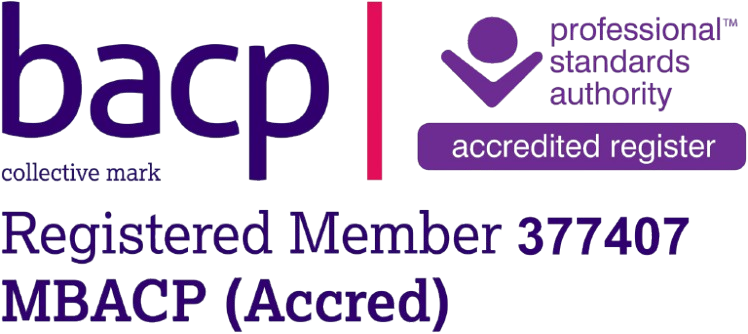Bespoke Therapy To Meet Your Particular Needs
Welcome, and thank you for visiting Steel City Counselling and Psychotherapy. My name is Mark and I am a psychotherapist based in Sheffield and South Yorkshire.
About Me
I am a BACP Accredited psychotherapist. My training is in person-centred and experiential psychotherapy and counselling. In addition to this, I have 28 years experience as a Registered Mental Nurse, where I worked primarily (but not exclusively) with people who had substance use problems.
I completed an MSc in Person Centred and Experiential Psychotherapy in September 2017 and have worked in an NHS staff support service as a counsellor since then, alongside my private practice.
Although the foundation of my practice is Person-Centred, I now describe my approach as Pluralistic. This is based on the aspiration that each passage of therapy can be modified according to the unique needs of the individual, providing it remains within the competence of the therapist.
In practice, this means that I endeavour to tailor each therapy according to your specific needs, bringing in tools, techniques, strategies and experience from other modalities and bodies of knowledge as long as they congruent with your needs, and sit within my competencies.
My Experience and Approach
I have experience of working in long- and short-term therapy, providing counselling both within my own practice, as well as the NHS. This has involved working with a variety of problems including (but not limited to) loss, stress, anxiety, trauma, burn-out, relationship rupture, life transition and identity.
My approach is based on offering a compassionate, non judgmental approach within a safe environment in the hope that this will allow clarity, reinforce current coping mechanisms and foster future growth. This attitude acknowledges that each person is unique, and aims to enhance their sense of autonomy and agency.
Counselling takes place in a safe space, where you can meet with someone who will listen with sensitivity and empathy - and without judgement. In the therapy space thoughts and feelings can be expressed freely and in confidence.
Trouble with a relationship; anxiety or panic attacks; mood swings or depression - many people face difficulties in their everyday lives that can be hard to get on top of. Counselling gives us a set of tools we can use to help gain a better understanding of what’s causing these problems - and how you can move towards managing or resolving them.
Working together I can help you gain greater insight into the difficulties you are facing, help you understand why you act or react to them the way you do, and see how you can start to make better, heathier choices moving forward.
What Issues Can Counselling and Psychotherapy Help With?
People come to me for help with a wide range of issues. Here are a few of the more common difficulties that can be supported through counselling:
Abuse
Anxiety
Bereavement/Loss
Child related issues
Cultural issues
Depression
Health related issues
Identity issues
Men's issues
Redundancy
Relationships
Self esteem
Sexual identity
Sexuality
Spirituality
Stress
Women's issues
Work related issues
Fees and Availability
The initial consultation is free. Thereafter, I charge on a sliding scale from £30 to £60 per session, according to what you can afford. I leave this decision entirely to you.
The frequency of sessions is something we can discuss if we agree to work together, but I usually recommend that at the start of the therapeutic relationship, the frequency is not less than every other week. This gives us the chance to get to know each other and establish a foundation for the work.
My Location
I offer face-to-face appointments at The Practice Rooms in Broomhill, Sheffield, located at 5 Broomfield Road, Sheffield, S10 2SE. I see clients from across Sheffield and the wider South Yorkshire area. You can find more about the location here.
In addition to in-person therapy, I also offer online counselling via Zoom. Please get in touch to learn more about how online therapy works and whether it's right for you.
Get In Touch
Feel free to contact me if you have any questions about how counselling and psychotherapy works, or to arrange a free initial consultation.
This enables us to discuss the reasons you are thinking of coming to counselling, whether it could be helpful for you, and whether I am the right therapist to help.
You can also call me on 07447522578 if you would prefer to leave a message or speak to me first.
All enquires are usually answered within 24 hours, and all contact is strictly confidential.
Frequently Asked Questions
What's the difference between counselling and therapy?
Many therapists tend to view Counselling as ‘short-term’ work; when someone has a problem that can be looked at and discussed in a clearly-resolvable way. This work often requires undertaking sessions for a certain number of weeks, to explore, discover and clarify a way forward. Therapy is a word used more to describe ‘long-term’ work; discussion that tends towards substantial issues and things that might be life-changing on a deeper level.
Whether counselling or therapy work best as a short- or long-term option depends on the client though, and the difficulties they are facing. In some cases counselling can prove helpful as a continuing, longer-term option, or therapy can help resolve an issue in just a few sessions.
How long will I need to have counselling?
There’s no fixed or ideal length of time for the counselling process; it varies from person to person and will often depend on the depth of the issues they are facing. While I can work on an open-ended basis with clients, I find it is helpful for us to both agree before we start on undertaking a certain number of sessions and reviewing where we are at once we reach that point. You are able to decide how long your therapy will last, and in return my aim is to make sure therapy continues for only as long as it is of benefit to you.
This depends on what your needs are. Some people find that after only a very few sessions they have some clarity and focus and are ready to end the therapy. Other people value the ongoing support and relationship with me and will continue to come for weeks, months, or even years. There is no 'one-size-fits-all' when it comes to therapy.
How long will I have to wait for an appointment?
My aim is to offer you a first appointment, known as an assessment session within 1-2 weeks, this is once we receive your completed client pack back. However, waiting times will vary according to pressure on our resources, your own availability and the service you seek.
An appointment to our short term counselling, which is not subsidised, can be offered within about one week.
Will everything I say be kept confidential?
Confidentiality is one of the main ways in which therapy differs from many other forms of helping - for example, talking to friends or family can rarely offer the same degree of confidentiality as talking to a counsellor. Because of this confidentiality, you will find that - as you get used to coming for therapy - you are freer to talk about whatever you wish to.
No therapist can offer 100% confidentiality: there are some situations where the law requires disclosure of risk (e.g. certain child protection issues) and in common with most other therapists, there are some situations where I may not be able to keep total confidentiality. In particular, if someone tells me that they are thinking of harming themselves in a way that I believe puts them at serious risk, or if someone tells me that they are doing something that could put others at risk, I may not be able to keep such information confidential. However, breaking confidentiality is rare, and only happens after talking to the person concerned.
Can I bring a friend or relative with me?
When you come for counselling it's important that you feel free to talk about whatever is important to you. Sometimes, you may not be clear what those issues are. Having a friend or family member with you is not usually helpful because they may have their own agenda for you. Even if this is just that they want to be supportive, or want you to 'get better', this agenda can prevent us opening issues up. When you come for therapy, you may need to explore thoughts or behaviours about which you feel ashamed or embarrassed and you may censor yourself so as not to hurt someone, or you may find that what they want you to talk about is not really what you need to discuss.
Sometimes, family/friends can even be part of an underlying issue which needs to be aired and discussed. Usually, people who ask this question are nervous about coming for a session alone, or they are anxious for the person who is thinking about arranging sessions. This anxiety is quite normal, and you will not be forced to talk about anything you feel uncomfortable about - but you do need to be able to talk about whatever is important. For this reason, I do not see clients accompanied by friends or family.
©Steel City Counselling and Psychotherapy
powered by WebHealer



